Holidays after Brexit: All you need to know
- Published
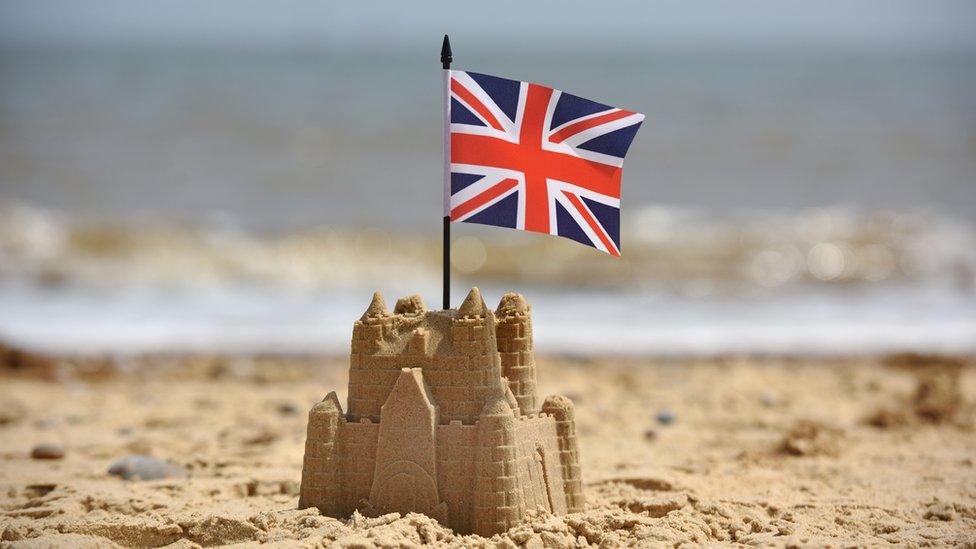
The Easter getaway is booked - just a few weeks until a much-needed romantic city break to Europe or a little bit of continental sun.
But hang on. What about travel after Brexit?
Well, no matter what happens, things are changing, and that means we need a bit more prep - and that's whether the UK gets a withdrawal deal or not.
Radio 1 Newsbeat has been looking into how to win at holidays after Brexit.
First of all... money
How much the pound is worth has changed a lot over the past three years - making us all a little poorer.
Back in December 2015, £1 would get you about €1.40.
Today it's nearer €1.15, and it's a similar story compared against most major currencies, with the pound losing about 15% of its value over that time.
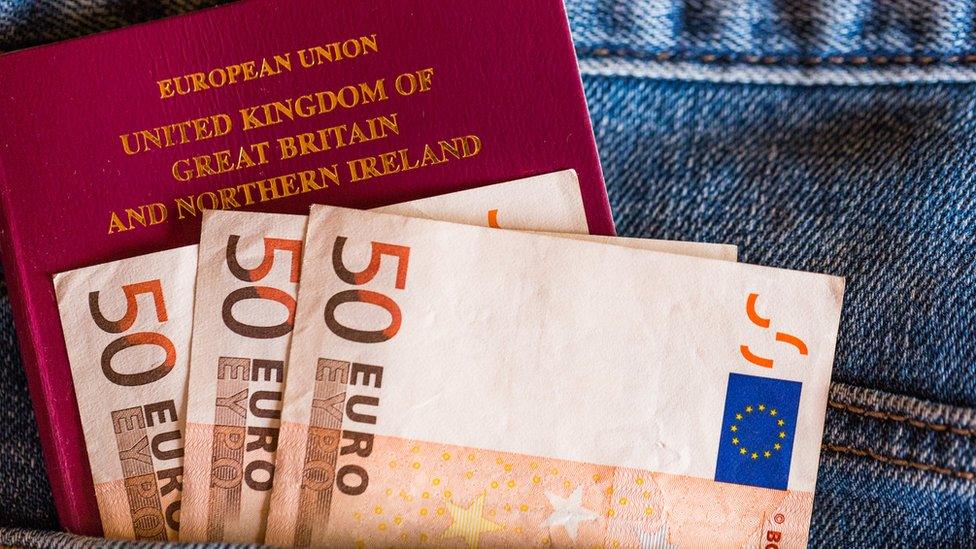
Passports will no longer be a burgundy colour from later this year
It's worth looking at specialist travel credit cards that give you better rates, or shopping around for cash before you go.
And some things don't change - it's never best to change your hard-earned cash at the airport.
Red or blue?
Big question - when does your passport expire?
If it's after October, you'll get a blue one, replacing the red European Union little books.
But, if you have less than six months left you should renew now, external - especially if the UK doesn't agree to a deal on leaving before the end of March.
This is because some countries in the EU, including France, won't let people from outside the EU in - even for a holiday - if you don't.

Trips to Paris will need some more thought
Visa-free travel to the EU
It's over - kind of.
Whether the UK gets a deal or not, by 2021 we will need to apply for an electronic visa waiver.
It's called an ETIAS (European Travel Information and Authorisation System), costs £6.30, and lasts for three years.
If you've been to the US recently it's the same principle - if you don't have it, they turn you away at the border.
The travel requirement isn't just for the UK but for many non-EU countries.
'Have you turned roaming off?'
When the train comes out the other side of the channel tunnel or you turn your phone on after landing you get the: "You're probably expecting a text about roaming charges."
They've been gone for almost two years, but roaming charges may be coming back.
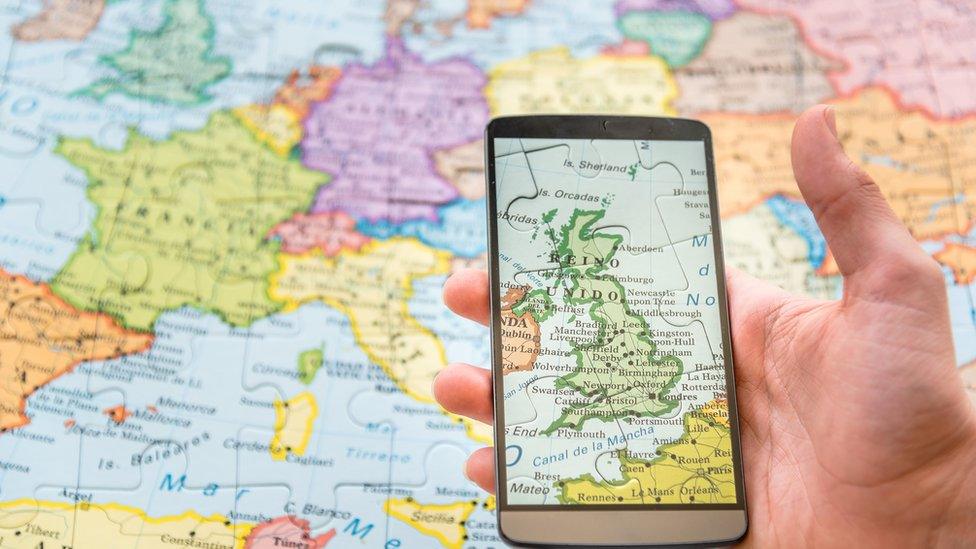
Roaming may actually involve roaming again
If we leave without a deal your phone company is allowed to start charging you more when you go on holiday, even to scroll Instagram and send WhatsApps.
Charges will be capped at £45 per month.
If there's a deal with the EU though, that's on hold until the start of 2021 - then it's again up to the networks.
Though it's worth noting around 85% of the networks currently say they have no plans, external to charge people roaming fees.
Remember this card?
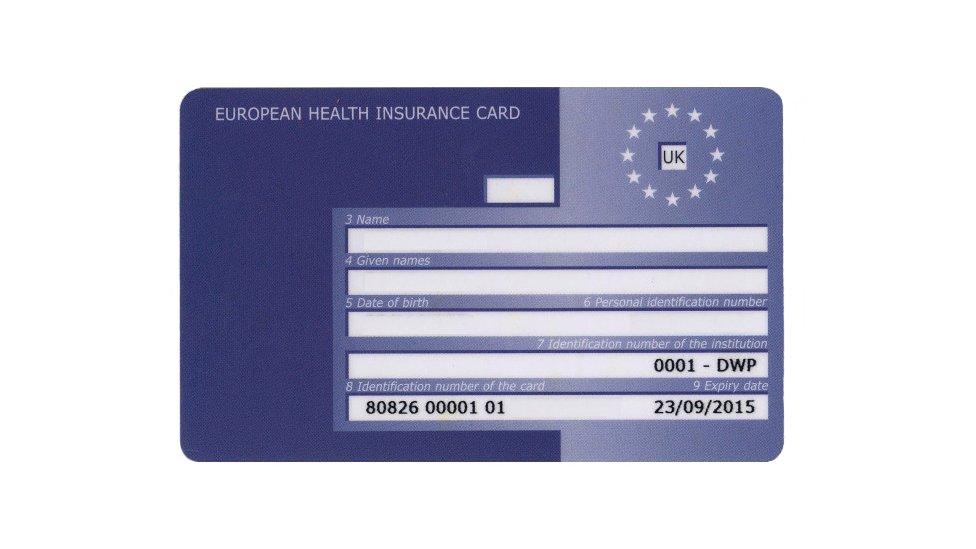
Nope? It's probably in a random sock drawer somewhere having gone out of date.
Well it's actually pretty useful if you get sick.
These cards give you reciprocal free health care when you are travelling in another EU country.
They won't be useful if the UK leaves the EU without a deal, but should still work until the end of 2020 if there is a withdrawal agreement with the EU.
So worth renewing now.
Happy travels!
Follow Newsbeat on Instagram, external, Facebook, external and Twitter, external.
Listen to Newsbeat live at 12:45 and 17:45 every weekday on BBC Radio 1 and 1Xtra - if you miss us you can listen back here.
- Published10 January 2022

- Published12 January 2021
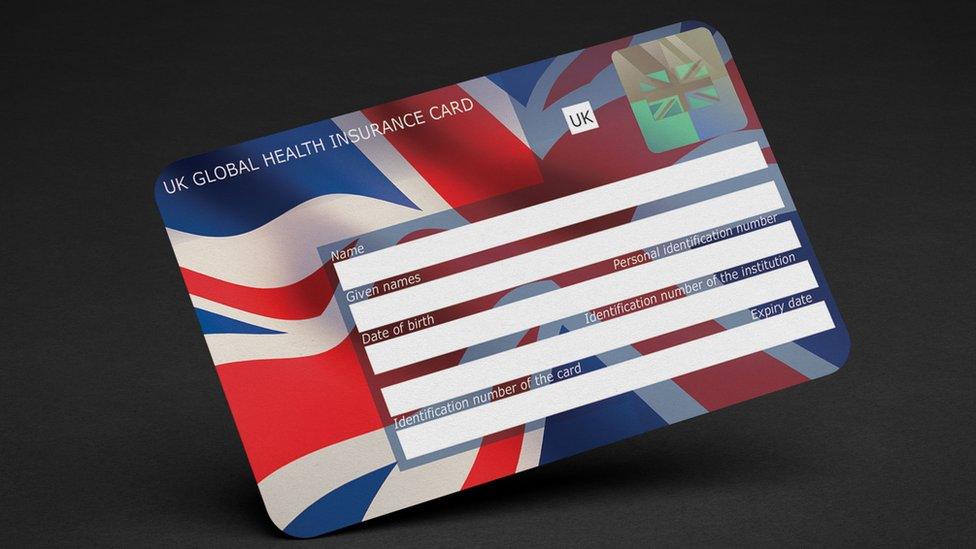
- Published16 December 2018
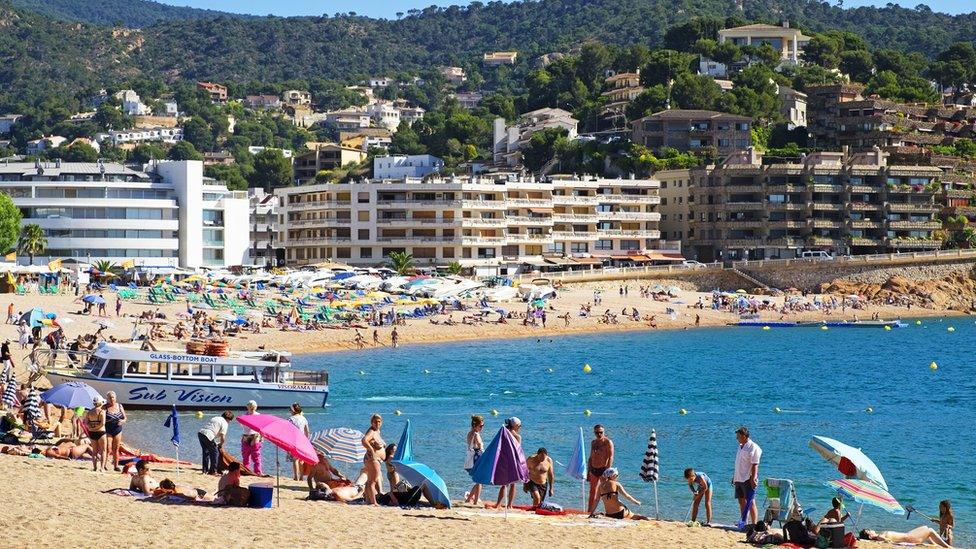
- Published28 December 2020
